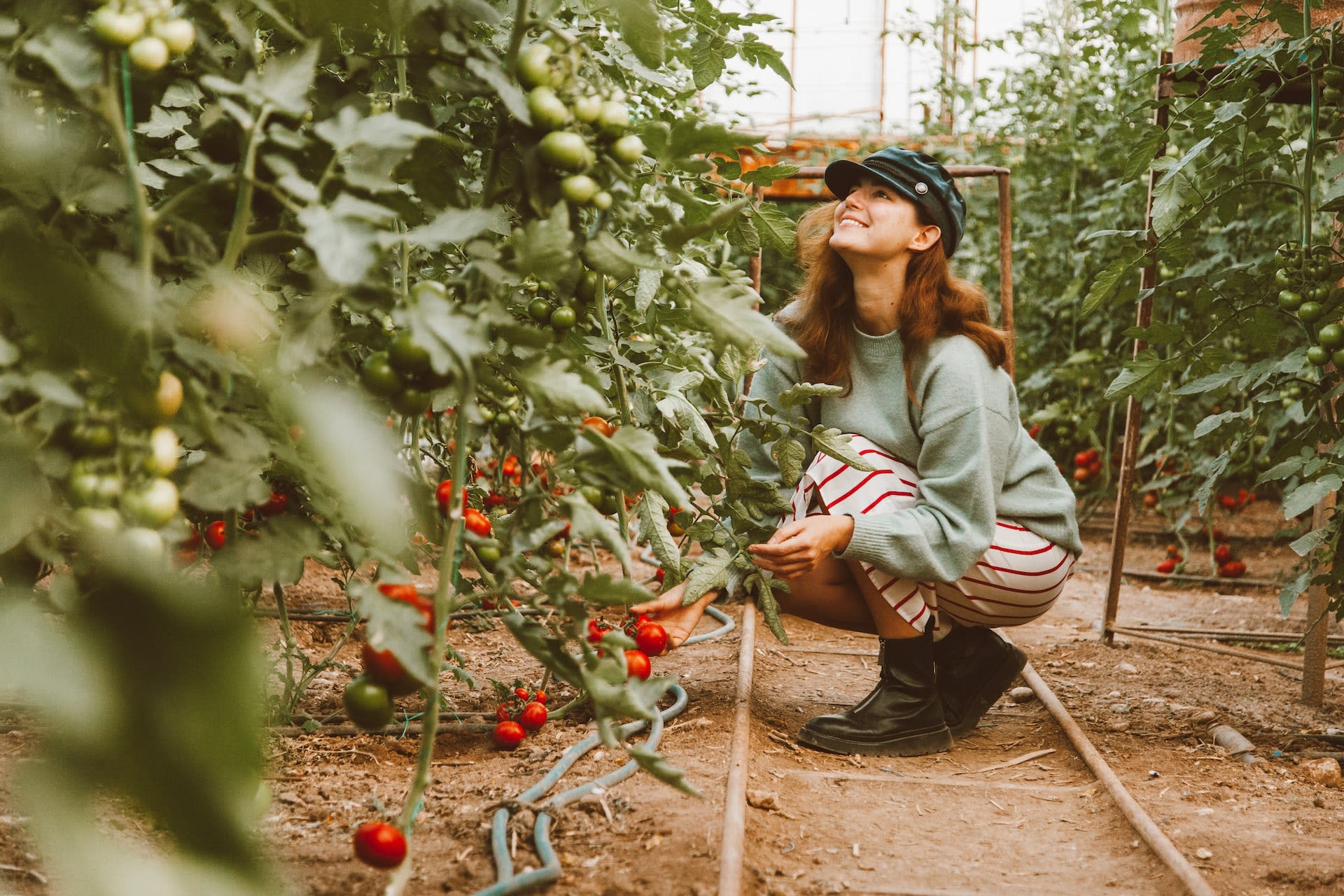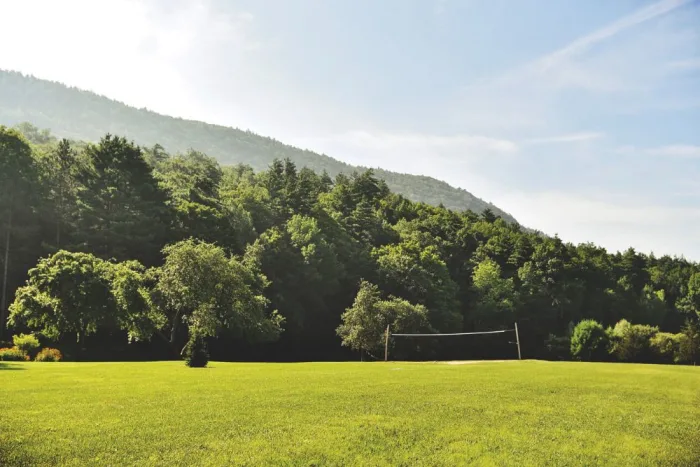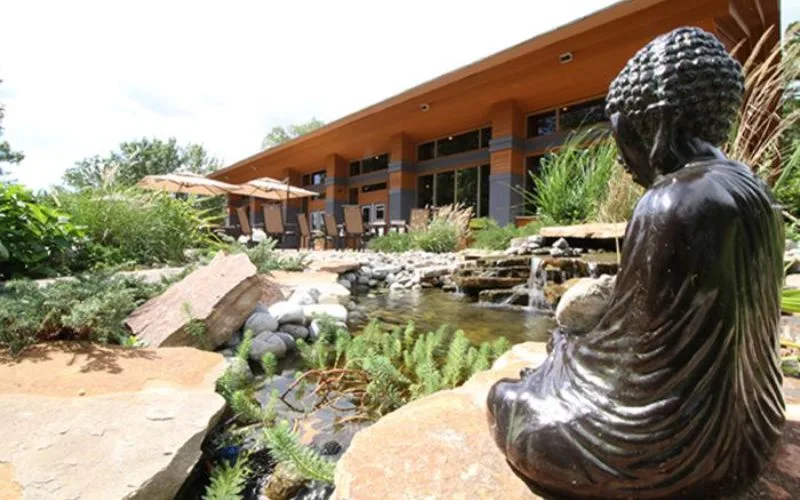Growing Past Addiction With Horticulture Therapy





- Gardening reduces stress, a key contributor to relapse.
- Caring for plants gives people a sense of purpose and connection to nature.
- By learning to nurture a garden, you can learn to nurture yourself.
Gardening can be more than a relaxing pastime. It also has clear mental health benefits—and it even supports addiction recovery. Rehabs with horticultural therapy help patients get grounded, literally. This treatment can inspire an appreciation for nature, give you a new hobby, and help you get to know yourself again.
What Is Horticultural Therapy (HT)?
In horticultural therapy, a therapist guides you through nature-based activities.1 That could mean gardening, weeding, or just spending time outside. You might even learn how to cook the food you grow.
Horticultural therapy looks different for everyone. In some programs, you’ll tend to a small window box of herbs. Others, like Mountainside Treatment Center, have more outdoor space for clients to explore.

What to Expect in HT, Whether Your Garden’s Big or Small
Specially trained therapists facilitate HT2 in rehab. You might see them one on one, or meet with a group of your peers. Treatment takes place in a natural setting, like a greenhouse, outdoor garden, or vegetable patch. In any of these places, you’ll learn about gardening and what different plants need to survive. Then, you’ll put it into practice.
Like most complementary therapies, HT also invites you to process your feelings. You might talk while you’re watering, or check in after you finish weeding for the day. Specifically, gardening teaches patients to be mindful.3 This skill is hugely important during addiction recovery.
How Can Gardening Help With Addiction?
Plants don’t judge you.4 They don’t know if you have an addiction or any other diagnosis. The way you treat them is the only thing that matters. And what’s more, they depend on you for care. You’ll learn how to show up for them every day, doing your best even if you feel your worst. And that skill can help you commit to every phase of addiction recovery.
Experts at Enlightened Recovery, a rehab focused on sustainability, believe that gardening echoes the cycle of recovery.5 They explain:
“This lesson that all things must grow, live, perish, and in turn be put back into the land is a part of our holistic outlook on recovery and living.”
In their program, gardening becomes a metaphor for your personal growth. The act of starting rehab can be a challenge, even before you begin treatment. HT reminds patients that letting go of the past is empowering. And what comes next can be beautiful.

The Benefits of HT in Rehab
Rehabs around the world use horticultural therapy to treat mental health issues, including addiction. And even after treatment, the benefits of gardening can support your ongoing recovery.
Treatment for Co-Occurring Disorders
Horticultural therapy helps people heal from more than one diagnosis at a time. If you’re recovering from addiction and a co-occurring disorder, this treatment might be a great fit. Gardening is especially helpful for patients with certain mental health issues,6 like depression and anxiety.
Stress Relief
Stress raises your risk of addiction.7 So throughout recovery, it’s important to engage in calming activities. And data shows that horticultural therapy relieves stress.8 Having regular access to plants—either indoors or outdoors—can greatly improve your mental health.

Nutrition
Scientists believe that growing the food you eat may have physical health benefits.9 And in rehabs like Summit Malibu, it’s easy to see why. After coming in from the garden, patients here learn how to cook with their own harvest. This process can help you reconnect to your own body, and find joy in healthy hobbies. It can also teach you about the importance of nutrition during recovery.
“Everything you do in the garden is an act of love.”
Gardening lets patients connect to nature. Every day you can see, feel, and even taste your own impact on the world around you. At rehabs like Mountainside Treatment Center, that perspective is crucial. Sheree Surdam, overseer of their horticultural therapy program,10 explains why.
Gardening gives “people a sense of purpose and stewardship over the natural world,” she says. “Everything you do in the garden is an act of love.”
Explore Horticultural Therapy Treatment Centers
Root Yourself in Recovery
A healthy plant is tangible. When you smell a rose you grew, you’re breathing in joy of your own hard work. And by learning to nurture your garden, you can learn to nurture yourself.
Compare rehabs with horticultural therapy to find the right program for you.
-
Bisaga, E. M. (2022). Horticultural Therapy Program for Individuals with Substance Use Disorder: A Mixed-Method Evaluation [CMC Senior Thesis, Claremont]. https://scholarship.claremont.edu/cgi/viewcontent.cgi?article=4354&context=cmc_theses
-
About horticultural therapy. (n.d.). Retrieved February 2, 2023, from https://www.ahta.org/about-horticultural-therapy
-
Yang, Y. et. al. (2022). “The Multi-Sites Trial on the Effects of Therapeutic Gardening on Mental Health and Well-Being.” International Journal of Environmental Research and Public Health, 19(13), 8046. https://doi.org/10.3390/ijerph19138046
-
What Is Horticultural Therapy? - Department of Plant Biology at Rutgers SEBS. https://plantbiology.rutgers.edu/hort-therapy/whatis.html. Accessed 21 Feb. 2023.
-
“Enlightened Solutions - Sustainability Practices.” Enlightened Solutions, 9 Mar. 2022, https://enlightenedsolutions.com/about--sustainability-practices/.
-
Siu, Andrew M. H., et al. “Horticultural Therapy Program for People with Mental Illness: A Mixed-Method Evaluation.” International Journal of Environmental Research and Public Health, vol. 17, no. 3, Jan. 2020, p. 711. www.mdpi.com, https://doi.org/10.3390/ijerph17030711.
-
Sinha, Rajita. “Chronic Stress, Drug Use, and Vulnerability to Addiction.” Annals of the New York Academy of Sciences, vol. 1141, Oct. 2008, pp. 105–30. PubMed Central, https://doi.org/10.1196/annals.1441.030.
-
Thompson, Richard. “Gardening for Health: A Regular Dose of Gardening.” Clinical Medicine, vol. 18, no. 3, June 2018, pp. 201–05. PubMed Central, https://doi.org/10.7861/clinmedicine.18-3-201.
-
Godman, Heidi. “Backyard Gardening: Grow Your Own Food, Improve Your Health.” Harvard Health, 29 June 2012, https://www.health.harvard.edu/blog/backyard-gardening-grow-your-own-food-improve-your-health-201206294984.
-
“Horticultural Therapy for Addiction Recovery.” Mountainside, 16 Aug. 2019, https://mountainside.com/blog/wellness/horticultural-therapy-for-addiction-recovery/.
Our Promise
How Is Recovery.com Different?
We believe everyone deserves access to accurate, unbiased information about mental health and recovery. That’s why we have a comprehensive set of treatment providers and don't charge for inclusion. Any center that meets our criteria can list for free. We do not and have never accepted fees for referring someone to a particular center. Providers who advertise with us must be verified by our Research Team and we clearly mark their status as advertisers.
Our goal is to help you choose the best path for your recovery. That begins with information you can trust.






